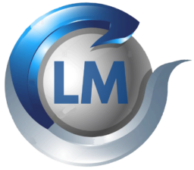-
House posted an update 12 months ago
We integrated Forty five studies (25 RCTs, ten cohort reports, as well as ten quasi-experimental scientific studies) having a full regarding 3846 individuals. We all graded the standard of proof while minimal with regard to discomfort overall performance so when modest with regard to QoL. Patients getting tunes, education, mental behavioral remedy, well guided symbolism, soreness managing skills instruction, Reiki, work-related treatments with self-monitoring, along with biofeedback-assisted intensifying muscle groups soothing training experienced reduce soreness scores or decreased opioid solutions following TKA. Ache problem management abilities training, sound recording-guided images programs, online video advertising self-confidence, subconscious remedies through online video, Reiki, tunes, field-work treatment using self-monitoring, education, and psychiatric therapy improved upon postoperative useful outcome. Schooling through an application increased QoL soon after TKA. The particular studies inside our methodical review vegf inhibitors demonstrate that perioperative interventions focusing on emotional distress for sufferers obtaining TKA seem to have a positive impact on postoperative pain, purpose, and QoL. RCTs together with stringent methodological shields continue to be had to see whether perioperative treatments devoted to psychological distress must be found in addition to TKA. These types of studies also need to determine which type of involvement will be best throughout increasing patient-reported result measures and also regressing opioid solutions.The aim of the analysis would have been to compare your usefulness and also safety of organic disease-modifying antirheumatic medications (bDMARDs) between elderly-onset arthritis rheumatoid (EORA) as well as young-onset rheumatoid arthritis symptoms (YORA) patients. Individuals with arthritis rheumatoid (RA) aged ≧18 many years participating in any Japanese multicenter observational computer registry between 2009 and 2018 that had modest as well as high illness activity whenever beginning bDMARDs have been provided. EORA ended up being looked as RA with onset from 62 or above. Right after propensity report weighting pertaining to variations in confounding elements, general pricing equations were chosen to assess the relationship between the age of RA onset and bDMARD specialized medical effectiveness from Forty-eight several weeks following creating a bDMARD. Amongst as many as 7183 individuals inside the pc registry, 2815 (39.2%) had been referred to as EORA. The particular percentage involving people about bDMARDs has been lower in your EORA as compared to the YORA (Eighteen.3% compared to 31.0%, p much less then 0.001). In the 989 bDMARD initiators, 364 (Thirty-six.8%) had been referred to as EORA. The typical follow-up period has been Twenty four several weeks in the actual EORA plus the particular YORA. After adjusting regarding differences in baseline features backward and forward age ranges, there was no factor inside Specialized medical Ailment Activity List standing at Forty-eight days (imply difference One particular.02, 95% CI = - 3.62 to two.Sixty four, p = 0.25). There were a non-significant pattern to lower remission in EORA (OR = 0.Fifty-two, 95% CI = 0.24-1.15, p = 0.12), and low disease activity/remission had been similar (OR = 0.90, 95% CI = 0.29-2.Fifty-two, p = 0.Seventy seven). Medication retention (HR = 0.95, 95% CI = 0.55-1.Thirty five, p = 0.Seventy eight) along with discontinuations because of negative events (HR = 0.77, 95% CI = 0.38-1.18, p = 0.22) were related between the two age ranges after realignment with regard to confounders. Inside RA people initiating bDMARDs, changes inside scientific illness at Twenty four weeks had been similar involving EORA as well as YORA. Medication retention and also unfavorable events stopping have been related backward and forward age brackets.
